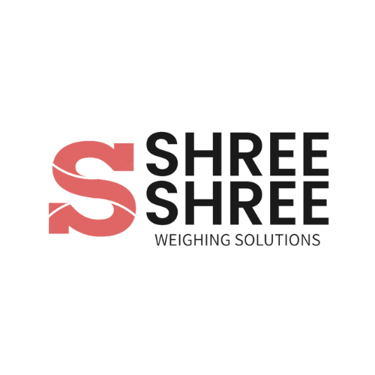The Importance of Weighing Scales in the Food Industry
The food industry is highly regulated, with strict standards to ensure the safety, quality, and consistency of products. Weighing scales play a crucial role in the food industry, where precision and accuracy are essential. Whether it’s for ingredient measurement, portion control, or packaging, accurate weighing ensures that businesses comply with regulatory standards and provide customers with consistent products. In this blog, we’ll explore why weighing scales are essential for the food industry and how they help streamline operations while ensuring compliance with safety standards.
5/28/20254 min read


1. Accuracy in Ingredient Measurement
One of the most important functions of weighing scales in the food industry is for ingredient measurement. In food production, recipes often require specific quantities of ingredients to maintain consistency, flavor, and texture. Inaccurate measurements can lead to subpar products, customer dissatisfaction, and wasted raw materials.
Baking: For industries like baking, where precision is key, digital weighing scales with high accuracy ensure that ingredients like flour, sugar, and yeast are measured correctly, ensuring the right proportions for every batch.
Cooking: In large-scale kitchens or catering businesses, portioning meats, vegetables, and other ingredients accurately ensures not only consistency but also efficient cost management.
By using accurate weighing scales, businesses in the food industry can maintain consistent product quality and reduce waste.
2. Regulatory Compliance and Food Safety
The food industry is heavily regulated to ensure consumer safety. In many countries, businesses must comply with food safety regulations, which include standards for ingredient measurement, packaging, and labeling.
Legal Metrology certification for weighing scales ensures that they meet the necessary standards for commercial transactions, preventing potential disputes and penalties. Certified scales are essential for:
Weight-based pricing: For food items sold by weight (such as fruits, vegetables, and meats), using a certified scale ensures that businesses are charging customers fairly and in compliance with the law.
Packaging: Properly weighed products, such as canned goods or packaged snacks, must meet specific weight requirements to avoid fines and ensure consumer trust.
By using certified weighing scales, food businesses demonstrate their commitment to compliance with food safety standards and consumer protection.
3. Portion Control and Food Costing
Effective portion control is critical for managing food costs and ensuring that customers receive the right quantity of food at the right price. Weighing scales help in controlling portions, particularly in industries like:
Restaurants and catering: Weighing scales help ensure that every serving of food has the correct portion size, reducing food waste and controlling costs.
Food manufacturing: For products like packaged snacks, beverages, or canned goods, accurate measurements ensure the right amount of product per package, optimizing costing and pricing strategies.
Accurate portioning also leads to better inventory management by helping businesses track the use of raw materials, reducing excess and ensuring they operate efficiently.
4. Enhancing Customer Experience
Customer satisfaction is a key driver of success in the food industry. Consumers expect to get the correct quantity and quality for their money, and weighing scales help businesses deliver that promise. Whether it’s in grocery stores, restaurants, or supermarkets, customers can trust businesses that use accurate scales for transactions.
Retail environments: In supermarkets, grocery stores, and farmer's markets, weighing scales allow customers to purchase fresh produce or bulk goods with confidence, knowing they are getting the correct weight.
Online food deliveries: For e-commerce businesses that sell fresh food, accurate weighing ensures that deliveries meet the customer’s expectations, and businesses don’t run the risk of under-delivering.
Using accurate and certified weighing scales helps build customer trust and ensures a positive customer experience, fostering loyalty and repeat business.
5. Streamlining Food Packaging and Labeling
For food manufacturers, packaging and labeling are vital components of the production process. Accurate weighing of ingredients and products is necessary for proper packaging and ensuring that each package contains the correct amount of product.
For example, packaged food products must be weighed to meet legal requirements for labeling, ensuring that the listed weight matches the actual weight of the product.
Labeling requirements: Depending on the country, food packaging might need to indicate the exact weight of the contents. Using certified scales ensures accuracy in labeling, preventing potential legal disputes and fines.
Weighing scales also streamline the process of filling packages quickly and consistently, increasing efficiency in food production lines.
6. Maintaining Inventory Control
In food production and grocery stores, managing inventory is crucial for maintaining an optimal supply of products and minimizing waste. Weighing scales help businesses track stock levels and ensure that raw materials or finished products are accurately logged in inventory systems.
In warehouses: Weighing scales help determine the exact weight of goods coming in and going out, providing real-time data for inventory tracking and reordering supplies.
In manufacturing: Scales help ensure that raw ingredients are available in the right quantities, allowing businesses to maintain smooth production processes.
By integrating weighing scales into inventory management systems, businesses can maintain better control over their stock, reduce waste, and avoid stock-outs or overstocking.
7. Reducing Waste and Increasing Efficiency
Using the right weighing scales helps businesses in the food industry reduce waste by ensuring correct measurements for both ingredients and finished products. For example:
Food manufacturers can ensure that the right amount of ingredients is used in each batch, preventing overuse or underuse of raw materials.
Restaurants and catering businesses can ensure that the right portion sizes are used, reducing food waste and improving profitability.
By improving efficiency in food production and minimizing waste, businesses can lower operational costs and improve overall profitability.
8. Supporting Sustainability Initiatives
Sustainability is becoming increasingly important in the food industry. Businesses are striving to minimize waste, reduce their carbon footprint, and use resources more efficiently. Weighing scales contribute to sustainability by:
Helping businesses reduce food waste through better portioning and ingredient management.
Enabling recycling and reuse by providing accurate weight data for waste products and ensuring they are properly disposed of or repurposed.
By investing in efficient weighing equipment, businesses contribute to environmental sustainability while also improving operational efficiency.
Conclusion
Weighing scales are an essential tool for ensuring accuracy, compliance, and efficiency in the food industry. From ingredient measurement and portion control to packaging and inventory management, accurate scales play a crucial role in maintaining quality, reducing waste, and ensuring customer satisfaction. In a highly regulated and competitive market, using Legal Metrology certified weighing scales can help businesses maintain compliance with food safety standards, improve cost control, and deliver a consistent customer experience.
At Shree Shree Weighing Solutions, we offer a wide range of certified weighing scales tailored to meet the diverse needs of the food industry. Whether you’re in food manufacturing, retail, or catering, our reliable, accurate scales will help your business thrive.
Need Reliable Weighing Scales for Your Food Business?
📞 Contact us today for high-quality, Legal Metrology certified weighing scales that suit your food industry needs.
📍 Visit our Ahmedabad showroom, or schedule a demo at your facility across Gujarat.
